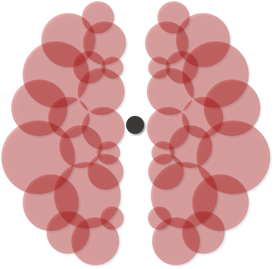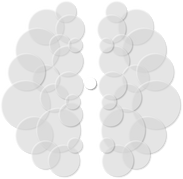

What is mental health?
Mental health refers to our emotional, psychological, and social well-being. It influences how we think, feel, and act, and it also affects how we handle stress, relate to others, and make choices. Mental health is important at every stage of life, from childhood and adolescence through adulthood. Good mental health allows us to cope with the stresses of life, work productively, maintain healthy relationships, and contribute to our communities. However, mental health disorders can disrupt these aspects of life, causing distress and impairing functioning. It's essential to prioritize mental health by seeking support when needed, practicing self-care, and promoting mental wellness in our communities.

What is Neuropsychology?
Neuropsychology is a branch of psychology that focuses on the relationship between brain function and behavior. It involves studying how various aspects of brain structure and function influence cognitive, emotional, and behavioral processes. Neuropsychologists assess and treat individuals with neurological conditions, such as traumatic brain injury, stroke, dementia, epilepsy, and developmental disorders, to understand how these conditions affect cognition, emotion, and behavior. They use a variety of assessment tools, including standardized tests and neuroimaging techniques, to evaluate brain function and develop interventions to help individuals improve their cognitive and emotional functioning.



What are neurological conditions?
Neurological conditions are disorders that affect the nervous system, which includes the brain, spinal cord, and nerves throughout the body. These conditions can affect movement, sensation, cognition, behavior, and other functions. Some common neurological conditions include:
- Stroke: A sudden interruption of blood flow to the brain, leading to brain damage and often resulting in loss of motor function, speech impairment, and cognitive deficits.
- Epilepsy: A disorder characterized by recurrent seizures, which are caused by abnormal electrical activity in the brain.
- Parkinson's disease: A progressive neurological disorder that affects movement, causing tremors, stiffness, and difficulty with balance and coordination.
- Multiple sclerosis (MS): An autoimmune disease that affects the central nervous system, causing inflammation, damage to the myelin sheath (the protective covering of nerve fibers), and a wide range of symptoms, including fatigue, weakness, and problems with coordination and balance.
- Alzheimer's disease: A progressive neurodegenerative disorder that primarily affects memory, thinking, and behavior, leading to cognitive decline and eventual loss of independence.
- Traumatic brain injury (TBI): Damage to the brain caused by an external force, such as a blow to the head, which can result in a wide range of physical, cognitive, and emotional symptoms.
- Neuropathy: Damage to the peripheral nerves, leading to symptoms such as pain, numbness, tingling, and weakness in the affected areas.
These are just a few examples of neurological conditions, and there are many others that can affect the nervous system in different ways.


What is Dementia?
Dementia is a syndrome characterized by a progressive decline in cognitive function, including memory loss, reasoning, language, and the ability to perform everyday activities. It is caused by damage to brain cells, which can be due to various diseases or injuries. Dementia is severe enough to interfere with a person's daily life. Some of which affects a person's ability to think, remember, and reason, and it typically becomes more severe over time, impacting a person's independence and quality of life. Alzheimer's disease is the most common cause of dementia, but there are other types as well, such as vascular dementia, Lewy body dementia, frontotemporal dementia and mixed dementia. Each type has its own characteristics and progression patterns.

What are some mental health prevention methods?
Preventing mental health issues involves promoting overall well-being and resilience. Here are some strategies for mental health prevention:
Maintain a Healthy Lifestyle: Eat a balanced diet, exercise regularly, get enough sleep, and avoid substance abuse.
Manage Stress: Practice stress-reduction techniques such as mindfulness, deep breathing, yoga, or meditation.
Build Strong Relationships: Cultivate supportive relationships with friends, family, and community members. Social support is essential for mental well-being.
Set Boundaries: Learn to say no to activities or commitments that cause excessive stress or strain.
Seek Help Early: Don't hesitate to reach out for professional help if you're struggling. Early intervention can prevent issues from worsening.
Stay Active: Engage in activities that you enjoy and that give you a sense of accomplishment.
Practice Self-Care: Prioritize self-care activities that nourish your mind, body, and spirit.
Stay Connected: Stay connected with others, even if it's through virtual means. Loneliness can exacerbate mental health issues.
Limit Media Consumption: Be mindful of the content you consume, especially on social media. Limit exposure to negative news or images that can increase stress and anxiety.
Cultivate Resilience: Develop coping skills to deal with life's challenges and setbacks. This might include problem-solving skills, positive self-talk, and adaptive thinking patterns.









